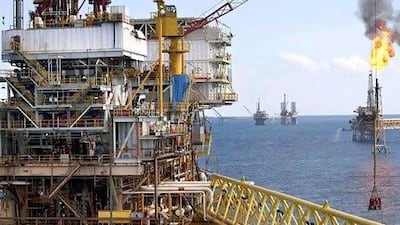"The imperialists can go to hell", snarled Rafael Ramirez, the head of Venezuela's state oil company, Petroleos de Venezuela (PDVSA), last week."Their sanctions mean nothing to us".
Mr Ramirez was referring to US sanctions on PDVSA over its petrol supplies to Iran. In fact, the sanctions are extremely mild - they do not prevent Venezuela selling oil to the USor target its US subsidiary, Citgo. But the spat again raises the troubled, adversarial course of Venezuelan oil.
Venezuela's recent history has been a tug of war between the interests of the middle classes, the poor, PDVSA, Opec and oil consumers, notably the US.
After the 1986 oil price crash, Venezuela reluctantly accepted a 1989 IMF austerity plan. Carlos Andres Perez, the lanky, balding veteran president, eliminated petrol subsidies, hitting the poor hard and triggering rioting and a brutal government crackdown, the infamous Caracazo, in which as many as 3,000 people may have died.
The old, cosy, corrupt Venezuelan political order, in which two essentially middle-class parties, AD and Copei, alternated power and patronage, was utterly discredited. The army officer Hugo Chavez vaulted to nationwide prominence via his 1992 coup attempt; although it failed, he was elected president in 1999, running on a platform of Venezuelan nationalism, anti-colonialism and pro-poor policies.
Although PDVSA is one of the better-run national oil companies, its contributions to the government budget had been steadily declining, and it was run as a state within a state. It had ambitious plans for expansion, intending to produce 8 million barrels per day by last year, which would have made Venezuela the world's third-largest producer, just behind Russia and Saudi Arabia.
One of Mr Chavez's first priorities was to rein in PDVSA. He hosted the first Opec summit for 25 years and, largely by restraining Venezuela's own production, restored credibility to Opec's quotas. This contributed significantly to the rise in prices up to 2003, before other factors, such as the war in Iraq and soaring Chinese demand, took over.
Middle-class opposition to the president's socialist policies led to a general strike that gripped the country from December 2002 to February 2003. PDVSA employees led the strike, and 18,000 of them, 40 per cent of the workforce, were subsequently sacked.
Production, which had almost ground to a halt, has never fully recovered - from 3.2 million barrels per day (bpd), it is now about 2.8 million bpd. Foreign oil companies were targeted with higher taxes and nationalisation. Investment has been slashed, and leading companies including ExxonMobil have been replaced by firms from Mr Chavez's allies such as Belarus and Iran, without the skills to develop the Orinoco area's hundreds of billions of barrels of sticky, extra-heavy oil.
World markets and prices would be dramatically different without Mr Chavez. He is thus one of the pivotal figures of 21st-century oil - but not entirely in a positive way, even for Venezuelans. Partly because of him, Saudi Arabia has enjoyed the luxury of increasing both production and prices, while high prices have helped to empower Russia's Vladimir Putin and Mr Chavez's soulmate, Iran's Mahmoud Ahmadinejad.
Venezuela poured swelling oil revenues into social programmes, which PDVSA had to implement. For the first time, the Venezuelan poor saw some real concern from their government, with land reform and free vaccinations, health care and literacy classes.
But these successes came at heavy cost. A fairly capable state company became a welfare organisation: PDVSA grows food, in short supply because of domestic price controls, and makes furniture and home appliances. About half of its oil is delivered to Latin American allies at subsidised prices. Inflation is above 30 per cent, hitting the poor hardest, and despite large gas reserves, the country is experiencing an electricity crisis.
Brazil, a Latin American neighbour of Venezuela, is a different matter. Visiting in March, President Barack Obama said: "Brazil holds recently discovered oil reserves that could be far larger than ours … we look forward to developing a strategic energy partnership."
In 1997, Brazil ended the monopoly of its national oil company, Petrobras, and by 2000, it had sold almost half its shares on the Brazilian stock exchange. Petrobras became an expert in deepwater exploration, and from 2006 onwards, made a series of giant oil and gas discoveries in the offshore "pre-salt" area.
Brazil pursued macroeconomic stability, low inflation and constructive relationships with both the West and Latin American neighbours. Oil revenues will help to develop industry and expand social programmes, the "Bolsa Familia" that guarantee an income to poor families.
"We do what best serves the people of Venezuela and what best serves the interests of the Venezuelan state," Mr Ramirez said. But looking at the contrast between PDVSA and Petrobras, this looks questionable.
Brazil has trodden the hard path of incremental reform. The easy option of handing out oil money and berating the West has had only mixed results for poor Venezuelans in the barrios. Their future has now been mortgaged to the hope of ever-rising oil prices, undermined by the slow crumbling of their nation's primary industry.
Robin Mills is an energy economist based in Dubai, and the author of The Myth of the Oil Crisis and Capturing Carbon


